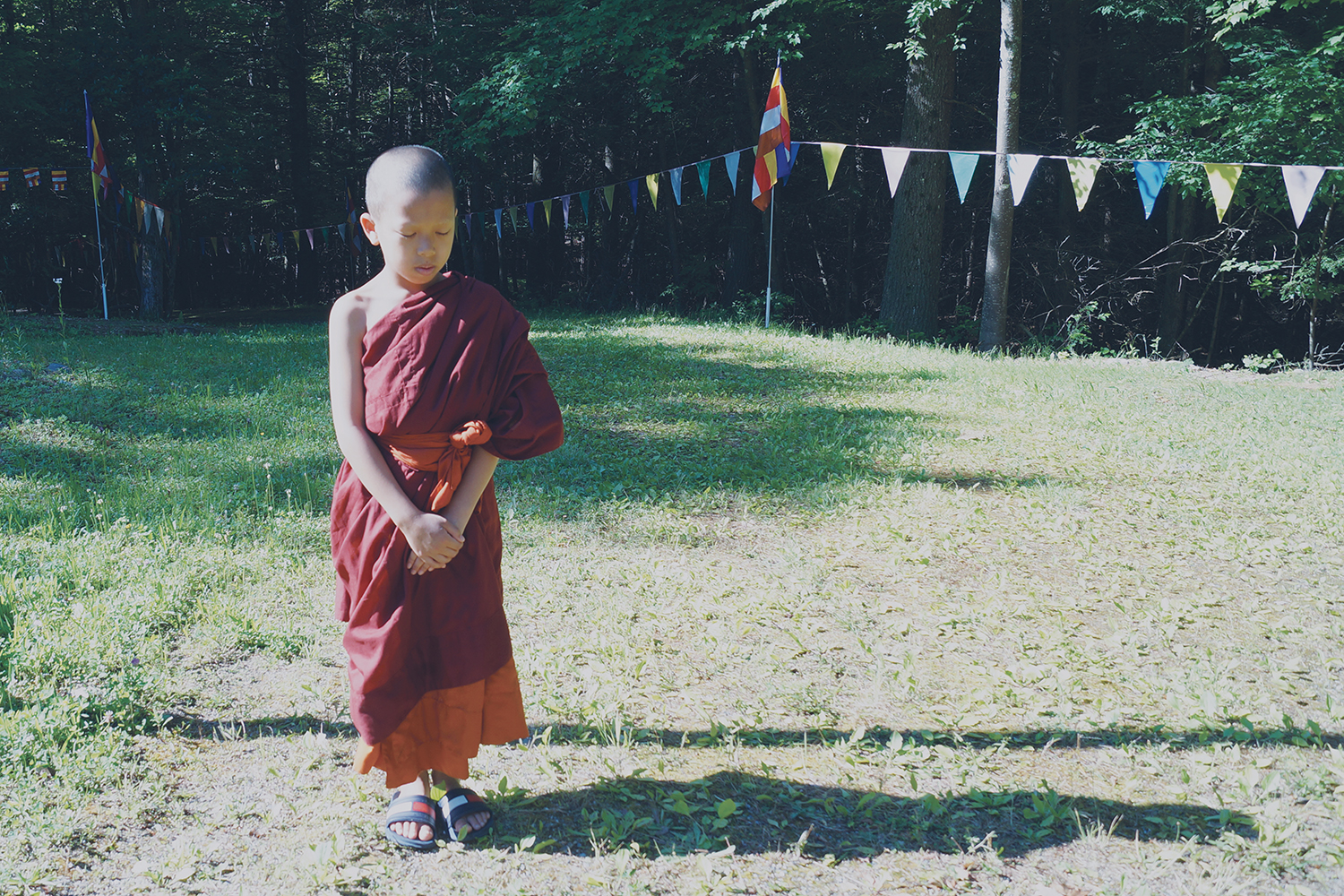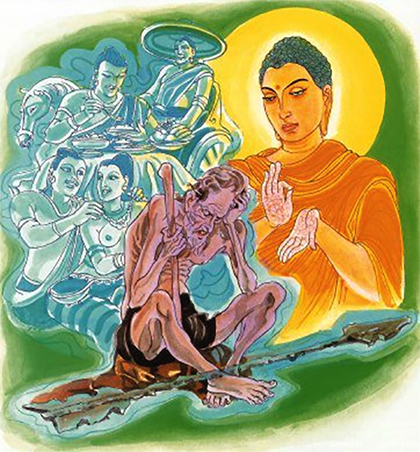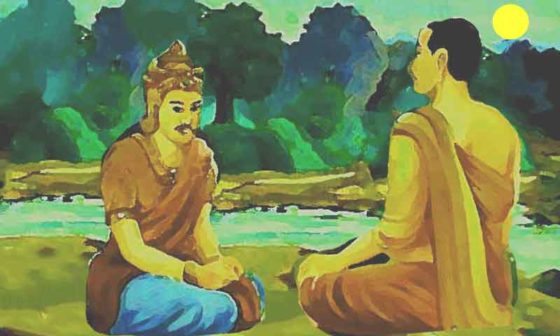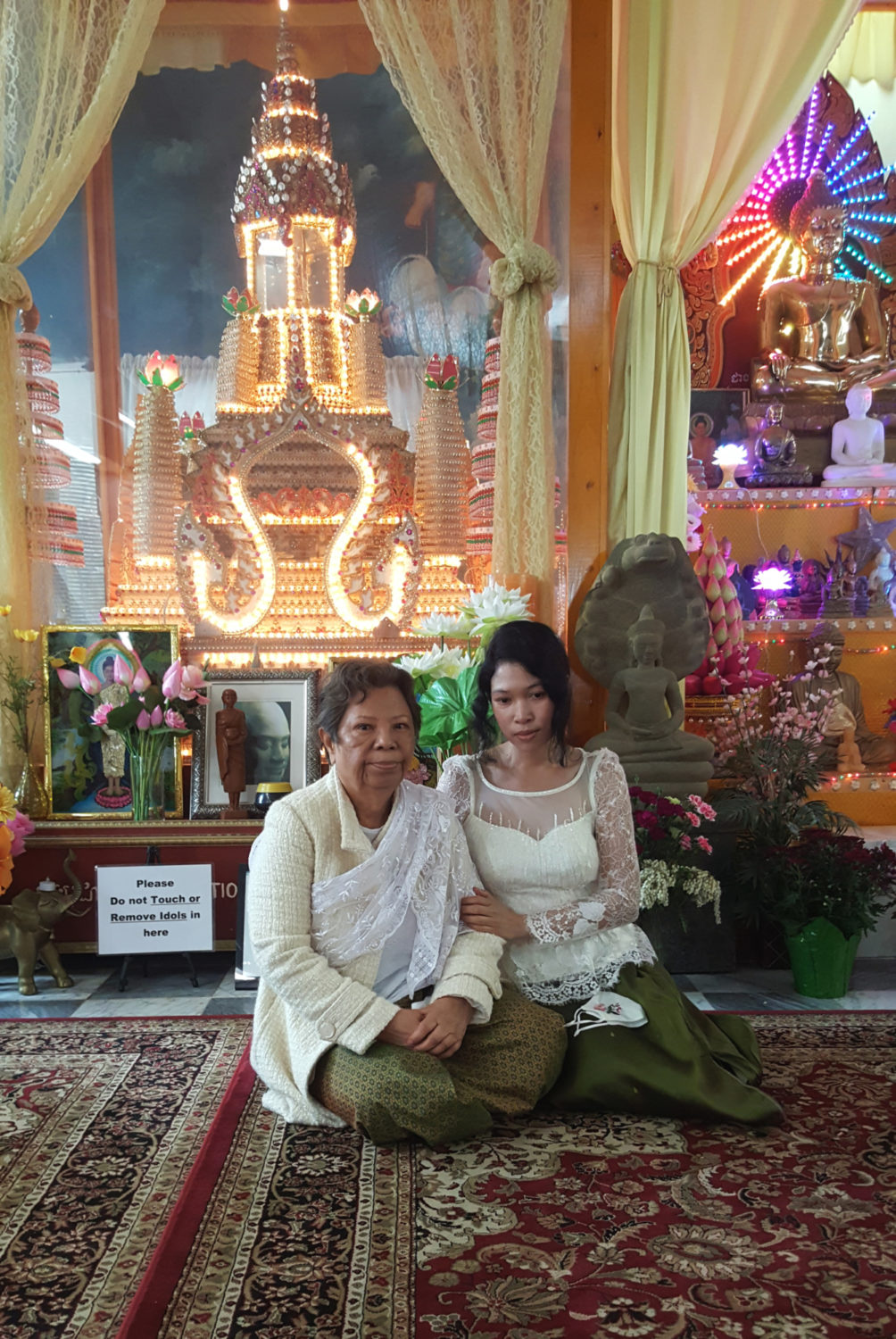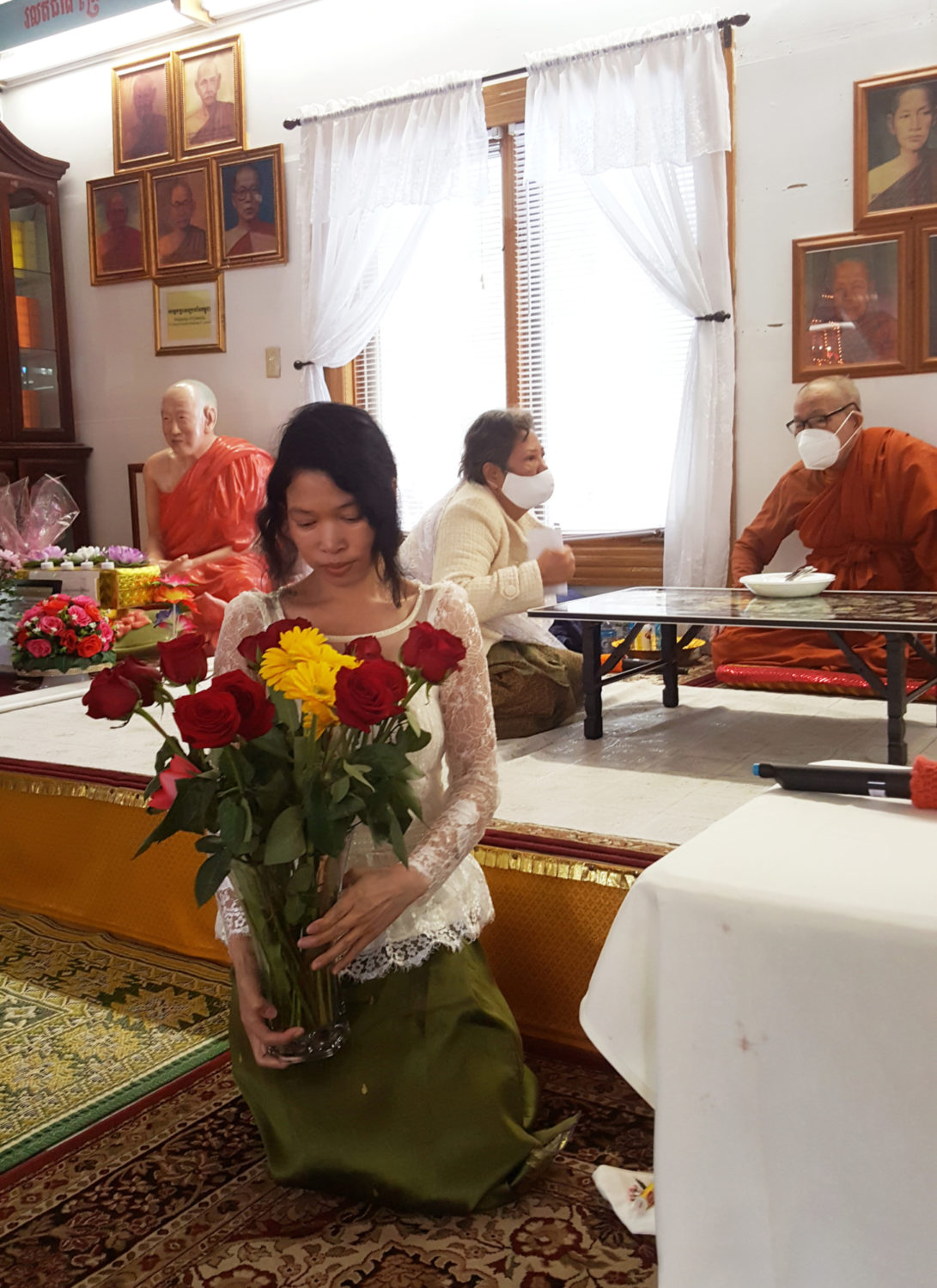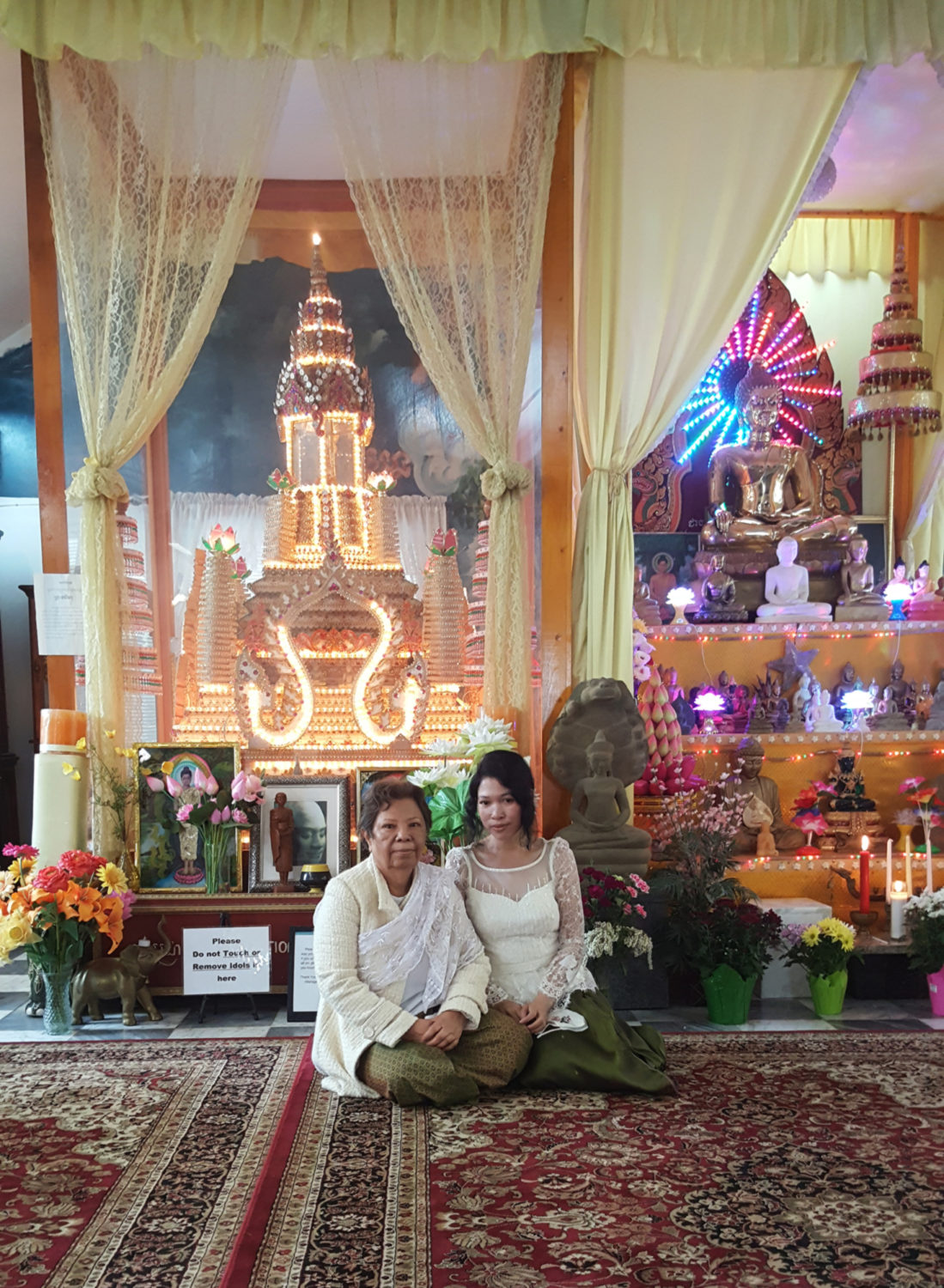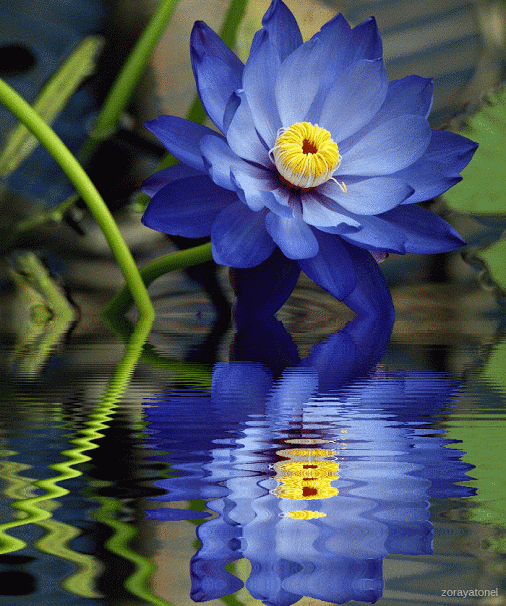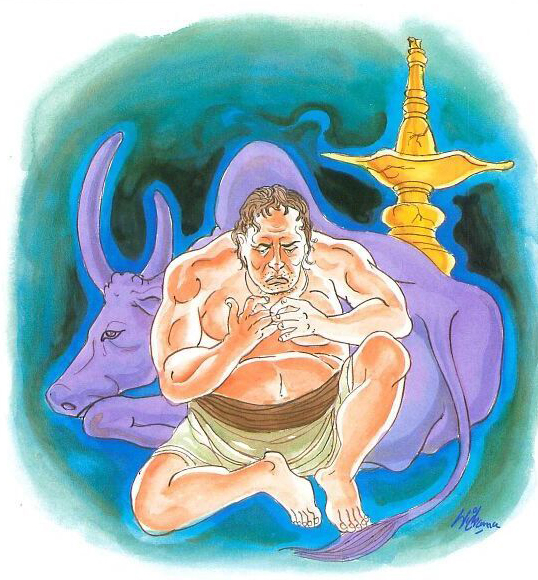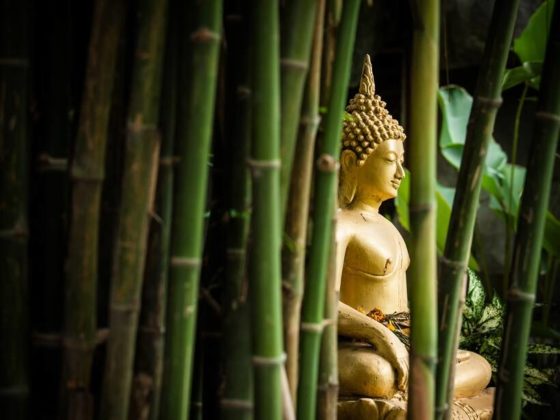
Verse 153: I, who have been seeking the builder of this house (body), failing to attain Enlightenment (Bodhi nana or Sabbannuta nana) which would enable me to find him, have wandered through innumerable births in samsara. To be born again and again is, indeed, dukkha!
Verse 154: Oh house-builder! You are seen, you shall build no house (for me) again. All your rafters are broken, your roof-tree is destroyed. My mind has reached the unconditioned (i.e., Nibbana); the end of craving (Arahatta Phala) has been attained.
The Story Concerning the “Words of Exultation of the Buddha”
These two verses are expressions of intense and sublime joy felt by the Buddha at the moment of attainment of Supreme Enlightenment (Bodhi nana or Sabbannuta nana). These verses were repeated at the Jetavana monastery at the request of the Venerable Ananda.
Prince Siddhattha, of the family of Gotama, son of King Suddhodana and Queen Maya of the kingdom of the Sakyans, renounced the world at the age of twenty-nine and became an ascetic in search of the Dhamma (Truth). For six years, he wandered about the valley of the Ganges, approaching famous religious leaders, studying their doctrines and methods. He lived austerely and submitted himself strictly to rigorous ascetic discipline; but he found all these traditional practices to be unsound. He was determined to find the Truth in his own way, and by avoiding the two extremes of excessive sensual indulgence and self-mortification*, he found the Middle Path which would lead to Perfect Peace, Nibbana. This Middle Path (Majjhimapatipada) is the Noble Path of Eight Constituents, viz., Right view, Right thought, Right speech, Right action, Right livelihood, Right effort, Right mindfulness and Right concentration. Continue reading →




